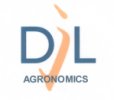| Improving Your
Soil and the Environment.
A practical explanation of soil science, current legislation
and the best ways to avoid wastage and environmental impact.
- Environmental Awareness:
Identifying areas of the farm which have the highest risk potential
from organic manures/wastes and fertiliser usage.
Understanding ‘biochemical oxygen demand’ (BOD)
and its significance in environmental risk assessment.
Understanding ‘eutrophication’ and its impact
upon surface freshwater quality.
Understanding Nitrate – where does it come from,
how does it get into our water and what effect does it
have on
us and our environment.
- Soil – The Basic Resource:
What are the components of soil and how do they interact
to form soils with different characteristics.
The importance of soil structure and its significance
in terms of root exploration, water retention and movement.
The significance of soil texture and prevention of surface,
particle run-off.
- Maintaining a Healthy Soil:
Understanding the significance of the biological activity
in the soil.
An appreciation of the nitrogen cycle and the mineralisation
process.
Understanding nutrient loss factors – ‘denitrification’, ‘leaching’ and ‘volatilisation’.
- Good Practice Defined:
A comprehensive examination of the Codes of Good Agricultural
Practice.
Assessment of run-off potential for different organic
manures/wastes under different circumstances and field
conditions.
Identifying areas of the farm where organic manures/wastes
should not be spread at any time.
Principles of storing organic manures/wastes and their
application to land.
Managing applications of organic manures/wastes to protect
the environment and reduce nutrient wastage.
- Understanding Nitrate Vulnerable Zones (NVZ) Legislation:
The EU Nitrate Directive.
An examination of the constraints upon manufactured nitrogen
fertiliser applications and their technical basis.
Understanding the ‘Farm Based Limit’ and the ‘Field
Based Limit’ for organic manures/wastes.
Non-spreading areas - establishing the areas of the farm
upon which no organic manures/wastes must be applied at
any time.
Understanding the closed periods – the significance
of soil type and category of organic manure.
Calculating the farms output of organic manure and establishing
the available disposal area.
Recording all the necessary information required by the
Environment Agency.

|





